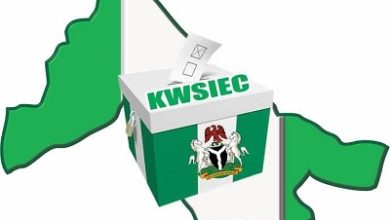Electricity pricing still echoes

Truth is that it hasn’t gotten better. We refer to electricity supply nationwide. Although, reasonable parts of the country have given thumbs up to power providers recently, yet we still have a long way to go. The intangible fact that power generation has risen in the last one year. President Muhammadu Buhari, in his New Year message did alluded to the nation’s attainment of 7,000 megawatts electricity generating capacity and the plan to boost it to 10,000MW by the end of his tenure in 2019. it must be stated however that the current generating capacity is a far cry from the 40,000MW the nation is reputed to require in order to stabilise power needs.
The tangible fact on the other hand is the obvious problems all the way down the power value chain as most of the time, the power that is actually transmitted and distributed hovers between 2,800MW and 4, 000MW. That power is the engine room of industrialisation in any country is over stating the obvious. Nigeria’s poor attention to this critical resource in its developmental efforts is hostile to its quest for rapid industrial transformation. Historically, during the 12 years covering the Ibrahim Babangida and Sani Abacha years, very little if not zero investment was made in the power sector. To make matters worse, the existing power infrastructure mostly at the Kainji Dam and the Egbin Thermal Power Station were neglected and allowed to fall into decay.
The transmission lines have not been maintained not to talk of upgrading for several decades. Power sub-stations and other support infrastructure became grossly inadequate for the country’s rapidly increasing population and the modernisation of all facets of national life with its attendant need for power. This was the state of affairs when a civilian democratic dispensation emerged in the country in 1999. But, what do you find? Almost 19 years after, the nation’s power infrastructure has hardly improved, as evidenced in President Buhari’s broadcast. It is now that the 4,000MW Mambilla Hydro-Power facility is getting off the ground, 40 years after it was first conceived. After the first 16 years of this civilian dispensation, and investments estimated at over $16 billion, the privatisation and commercialisation programmes of the government are yet to be completed.
The Independent Power Projects (IPPs) are troubled and the Road map to power sufficiency drawn up by the immediate past Goodluck Jonathan administration and celebrated to high heavens was truncated ab initio by political considerations and unbridled systemic corruption.The reality today is that there is very little to show for all those investments, and there is ample evidence that most of them were conceived for the funding of electoral campaigns and other patronage. The new owners of the unbundled power firms are mostly incompetent and lack the financial clout and technical know-how required to turn the sector around.
There has also been the long-standing problem of the laws which vested the residual powers for transmission, distribution and, until recently, generation, in the federal authorities alone. This had the effect of discouraging other levels of government from participating in the capital intensive sector. How were states and local governments expected to make the huge investments in power generation only to evacuate same to the national grid without any assurance of directly benefitting from their investments?
With the Road Map to sustainable power that was eventually rolled out, there were a number of grey areas in the enabling laws and hence, bottlenecks in its implementation. The issue of pricing was never adequately addressed. That is why today, it still echoes. What is the right price for a unit of power and when should this be paid? Would it be after power supply has improved significantly as most consumers tend to argue, or now, so that power can be improved as the new owners insist?
We hope that new investments in transmission and captive power generation in universities and states like Lagos will help in accelerating provision of electricity. Also, laws governing various facets of the value chain must be unbundled to lay bare and leave no one in doubt as to how to invest and recoup money. Then of course, the matter of metering is essential if customers (Nigerians) are the real people that these investments are targeted. It has to be the entire mix with an eye for local needs, home-grown solutions and international collaborations where necessary.





